Body Lift in South Africa
Search and Compare the Best Clinics and Doctors at the Lowest Prices for Body Lift in South Africa

Find the best clinics for Body Lift in South Africa
No pricing info available
Philippines offers the best prices Worldwide
Price: $ 216
From 72 verified reviews
Charlotte Sorour, 13 March 2020
Parking is a huge problem.On a positive note it is a great hospital with great specialists and doctor's hence why it is so busy. Well worth driving around a bit looking for parking knowing your loved one's are in good hands. My mind at ease. My husband is well looked after. Thank you Linksfield staff :)
From 36 verified reviews
Kim Adams, 30 March 2020
Overall I had a good experience.
Dr Dawid Potgieter, located in Syfred Douglas St, Cape Town, South Africa offers patients Body Lift procedures among its total of 90 available procedures, across 1 different specialties. Currently, there's no pricing information for Body Lift procedures at Dr Dawid Potgieter, as all prices are available on request only. All procedures and treatments are undertaken by the lead specialist at the Hospital, and they have multiple recognized accreditations, including: HPCSA - Health Professions Council of South AfricaDepartment of Health, Western CapeFCS(SA) - Fellowship of the College of Surgeons of South Africa
- Home
- South Africa
Compare Before & After Photos of _procedure_photos.phpBody Lift


Front view


Half-side view


Full-side view


Front view
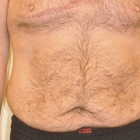
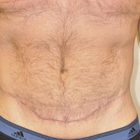
Front view
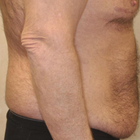
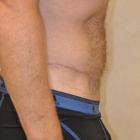
Half-side view


Front view
WHY US?
At Medijump, we're making medical easy. You can search, compare, discuss, and book your medical all in one place. We open the door to the best medical providers worldwide, saving you time and energy along the way, and it's all for FREE, no hidden fees, and no price markups guaranteed. So what are you waiting for?

Free

Best Price

Widest Selection

Risk-Free
What you need to know about Body Lift in South Africa
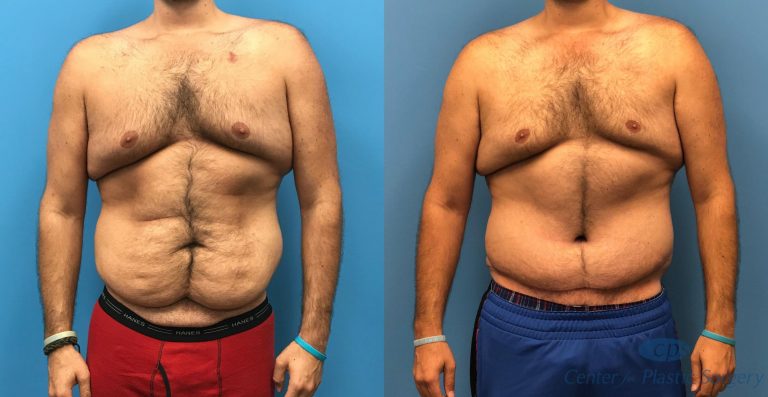
If you're considering a Body Lift procedure, you can trust the skilled surgeons in South Africa to refine your body contours. This operation primarily aims at removing excess sagging skin and fat, commonly post significant weight loss. The entire process can take anywhere between 3-7 hours.
Having a detailed discussion with the surgeon before the procedure ensures that the patient is fully aware of what the procedure entails, risks involved, post-surgery care, and changes to anticipate.
What is the cost of Body Lift in South Africa?
The cost for Body Lift surgery varies widely in South Africa, typically ranging around $15,000 to $30,000. These costs include a myriad of factors such as the surgeon’s charges, anesthesiology, operating room costs, and any other additional expenses required like specialised equipment or scar reduction creams.
However, it’s crucial to prioritise quality and safety over cost when deciding to go ahead with the procedure. After all, your physical well-being and self-confidence are invaluable.
What does a Body Lift Procedure Involve?
A Body Lift procedure is conducted under general anaesthesia wherein the surgeon makes specific incisions around the lower waist and upper thigh region to remove excess skin. Often, other procedures like liposuction can be undertaken to eliminate persistent fat deposits. Moreover, supplementary procedures such as liposuction can also be employed to get rid of persistent fat deposits, thus achieving a more defined body silhouette. After achieving the desired results, the incisions are meticulously sealed off using sutures, skin adhesives, or surgical tapes.
Bear in mind, while we have tried to explain the process, every Body Lift procedure is unique to the individual being treated. Therefore, the procedure's length and exact practices may vary depending on the patient's health status and the extent of sculpting required. It is this personalized approach that ensures the optimal outcome and patient satisfaction. Therefore, an in-depth consultation with your surgeon is necessary to fully understand the procedure's depth and commitment required.
How Long Should I Stay in South Africa for a Body Lift Procedure?
The timeline of your stay in Thailand for a Body Lift operation largely hinges on numerous factors. These can include preparation leading up to the surgery, your rate of healing, and the requirement for supplementary treatments. As a general rule, a Body Lift surgery is executed within a single day. Depending on how swiftly you recover and your overall well-being, you might be discharged on the same day or necessitate an overnight stay for observation.
Further, it's typically advantageous to continue your stay in Thailand for a period following the procedure. During this time, any follow-up appointments can be attended, and sutures, if used, may be safely removed. This post-surgery process can last for about a week or two, but a precise time frame can be given only after discussions with your treating physician. Prioritising a thorough recovery process is central to obtaining the best surgical results and minimising the possibility of complications.
What's the Recovery Time for Body Lift Procedures in South Africa?
Getting through a Body Lift Procedure in South Africa is only the beginning. The following weeks will be all about healing and recovery. Much like with every major surgery, the healing period varies with each person—it's comprehensively individual. But if we're to talk numbers and averages, the initial recovery phase usually lasts between about two weeks to a month. During these weeks, it's completely normal to experience some puffiness, bruising, and even some discomfort.
However, while the initial healing phase could be measured in weeks, complete healing can be slightly more extended—extending up to six months. The journey can be long, indeed. But remember, patience and discipline are what will get you through. You should take it easy and avoid heavy physical activities; instead, focus on eating right and sleeping well as this aids the speedy recovery. Of course, your doctor will be there to guide you, providing all the necessary instructions and advice relating to medications, wound care, and what to look out for. And they'll tell you this too sticking to these instructions is absolutely essential for a successful recovery.
What's the Success Rate of Body Lift Procedures in South Africa?
Body Lift surgeries conducted in South Africa have consistently demonstrated an outstanding degree of success, largely creditable to the skill set of seasoned surgeons located in the region. Here, the word 'success' extends beyond the visible physical improvements observed post-surgery. It further includes the intangible yet significant gains such as a surge in self-esteem and overall enhancement in the way of life that patients commonly report following the procedure.
However, it's vital to take note that the results of this procedure are not exclusively in the hands of our accomplished healthcare professionals. Patient participation is a key factor in ensuring a good outcome. Adherence to the advice given by the physician before and after the surgery, commitment to a healthful lifestyle, and holding realistic goals regarding the outcome of the surgery are critical aspects in the pursuit of a satisfactory and enduring outcome. In essence, the surgical outcome relies on a two-way relationship – the medical proficiency of the surgeon coupled with the patient's dedication towards their health and welfare.
Are there Alternatives to Body Lift Procedures in South Africa?
Though body lift surgeries are widely recognized for their effectiveness in enhancing body contours, they don't stand alone as the sole solution. In South Africa, you'll discover a variety of non-surgical and less invasive treatments for both skin tightening and body reshaping. These include:
- Laser therapies: This approach doesn't require any operation or invasive method. It uses a specific kind of light source (an infrared laser) to heat the collagen, a protein situated under your skin. This heating effect causes the skin to contract, leading to a tightened feel and look.
- Radiofrequency therapies: This harmless procedure triggers collagen production and the contraction of tissues through radio waves. As a result, your skin becomes firmer and gets a rejuvenated glow. It also helps reduce wrinkles and sagging.
- Cryolipolysis (CoolSculpting): This treatment cools down fat cells to a temperature that alters their structure until your body naturally gets rid of them.
- Liposonix: This method engages a non-invasive, high-intensity ultrasound technology to eliminate specific sections of fat beneath your skin, delivering consistent and expected results.
It's important to remember that while these treatments can provide significant benefits, they may not achieve the same long-lasting and striking results as a Body Lift procedure. Therefore, it is always best to consult with an experienced surgeon or healthcare professional in South Africa to get advice tailored to your specific needs and circumstances.
What sort of Aftercare is Required for Body Lift Procedures in South Africa?
Successful recovery from a body lift procedure in South Africa requires diligent aftercare. Post-procedure recommendations often include:
- Wound Care: Regularly cleaning and dressing the surgical wounds as advised by the healthcare provider.
- Medications: Taking prescribed medications timely to manage pain and prevent infections.
- Restrictions on Activities: Refraining from vigorous physical activities for at least a few weeks after surgery to allow the body time to heal.
- Hydration and Nutrition: Maintaining a well-balanced diet high in proteins and staying hydrated to facilitate healing.
- Follow-Up Consultations: Attending regular follow-up appointments with your healthcare provider to monitor the healing progress and address any complications at their earliest.
Remember, every individual has different healing rates, and commitment to the aftercare guidelines will ensure faster recovery and better results.
Can Body Lift Procedure Improve the Overall Health?
Beyond enhancing one's figure, a Body Lift Procedure positively impacts overall health and mobility. It helps combat skin problems like rashes and infections and improves body mobility by eliminating excess skin.
And let's not forget the mental well-being link here. This surgery can give self-confidence a giant boost and can have you feeling better about how you look, contributing to your mental health in a big way.
However, this procedure is not a shortcut to weight loss—it should ideally be performed once significant weight loss has already taken place. As with all surgical procedures, the decision should be made under the guidance of healthcare professionals, weighing the benefits against the risks.
Can Body Lift be Combined with Other Procedures?
Combining a Body Lift with other surgeries like breast enhancement or facial beautification is common practice in the field of cosmetic surgery. This technique yields a significant advantage of a single recovery process and reduced overall costs.
However, this decision rests on the patient's overall health condition and the complexity of the involved procedures. Therefore, we recommend having an in-depth discussion with your chosen surgeon to weigh your options.
What's the Impact of Weight Fluctuation After a Body Lift?
Significant weight changes after a Body Lift procedure can profoundly impact the aesthetic results and possibly present health risks. The effects of such weight changes typically include:
- Weight Gain: Substantial weight gain post-surgery can cause the skin and tissues to stretch again, negatively affecting the improved body contour achieved from the procedure.
- Weight Loss: On the flip side, extreme weight loss can lead to additional sagging and loose skin, diminishing the aesthetic improvements from the body lift.
Maintaining a stable and healthy weight is key to preserving the benefits of this procedure. Achieving this entails:
- Balanced Diet: Consistently adhering to a nutritionally balanced, portion-controlled diet.
- Regular Exercise: Engaging in regular, moderate physical activities to aid in maintaining your weight.
A body lift procedure, however, is not a replacement for a healthy lifestyle or a weight-loss solution. It should ideally be performed post-significant weight loss to help reshape and redefine the body contours. As with any surgical procedure, it's essential to have the guidance and approval of your healthcare provider to ensure optimum results and uphold your safety.
Is the Body Lift Procedure Safe for Older Adults?
Age isn't necessarily a determinant for whether someone can undergo a Body Lift operation; it's all down to their overall health and fitness. Even though healing might be slower in the elderly, and they may have a higher risk of surgical complications, they are not necessarily exempt from considering this procedure.
Therefore, it's crucial to have a comprehensive medical evaluation and a thorough discussion with the healthcare provider about the expected results versus the potential risks involved.
Whilst the information presented here has been accurately sourced and verified by a medical professional for its accuracy, it is still advised to consult with your doctor before pursuing a medical treatment at one of the listed medical providers
No Time?
Tell us what you're looking for and we'll reachout to the top clinics all at once
Enquire Now

Popular Procedures in South Africa
Prices Start From $113

Prices Start From $208

Prices Start From $600

Prices Start From $70

Prices Start From $111

Prices Start From $28

Prices Start From $120

Prices Start From $931

Prices Start From $275

Prices Start From $76

Prices Start From $236

Recommended Medical Centers in South Africa for Body Lift

- Interpreter services
- Translation service
- Religious facilities
- Medical records transfer
- Medical travel insurance
- Health insurance coordination
- TV in the room
- Safe in the room
- Phone in the room
- Private rooms for patients available

- Interpreter services
- Translation service
- Religious facilities
- Medical records transfer
- Medical travel insurance
- Health insurance coordination
- TV in the room
- Safe in the room
- Phone in the room
- Private rooms for patients available

- Interpreter services
- Translation service
- Religious facilities
- Medical records transfer
- Medical travel insurance
- Health insurance coordination
- TV in the room
- Safe in the room
- Phone in the room
- Private rooms for patients available

- Interpreter services
- Translation service
- Religious facilities
- Medical records transfer
- Medical travel insurance
- Health insurance coordination
- TV in the room
- Safe in the room
- Phone in the room
- Private rooms for patients available

- Interpreter services
- Translation service
- Religious facilities
- Medical records transfer
- Medical travel insurance
- Health insurance coordination
- TV in the room
- Safe in the room
- Phone in the room
- Private rooms for patients available

- Interpreter services
- Translation service
- Religious facilities
- Medical records transfer
- Medical travel insurance
- Health insurance coordination
- TV in the room
- Safe in the room
- Phone in the room
- Private rooms for patients available

- Interpreter services
- Translation service
- Religious facilities
- Medical records transfer
- Medical travel insurance
- Health insurance coordination
- TV in the room
- Safe in the room
- Phone in the room
- Private rooms for patients available

- Interpreter services
- Translation service
- Religious facilities
- Medical records transfer
- Medical travel insurance
- Health insurance coordination
- TV in the room
- Safe in the room
- Phone in the room
- Private rooms for patients available

- Interpreter services
- Translation service
- Religious facilities
- Medical records transfer
- Medical travel insurance
- Health insurance coordination
- TV in the room
- Safe in the room
- Phone in the room
- Private rooms for patients available

- Interpreter services
- Translation service
- Religious facilities
- Medical records transfer
- Medical travel insurance
- Health insurance coordination
- TV in the room
- Safe in the room
- Phone in the room
- Private rooms for patients available
Body Lift in and around South Africa
About South Africa
South Africa is home to some of the world's most luxurious private game reserves and lodges. Wildlife lovers come here from all corners of the globe in search of the "Big Five": lion, buffalo, leopard, rhino, and elephants. Coral reefs, shark dives, dragon-backed mountain ranges, white-water rafting, and golden beaches lapped by legendary surf breaks are some of South Africa's many other attractions. Traveling around this vast land and touring the vibrant cities, visitors can learn about the nation's turbulent history. Travelers coming to South Africa for medical treatments do so for cost savings, advanced medical technology, and the internationally qualified and skilled doctors. The country welcomes an ever-increasing number of medical tourists each year, many of which travel for Body Lift procedures. Medical Tourists travel from all across the globe, particularly from African countries with an inferior healthcare system. Popular destinations include the capital city, Pretoria, neighboring Johannesburg, and the stunning Cape Town.
Popular Parts of South Africa
With more than 57 million inhabitants, South Africa is the world’s 24th most populous nation. It is a multiethnic society with a large variety of cultures, languages, and religions. Known for its exhilarating outdoor adventure, fascinating wildlife, magnificent landscapes, and opulent history makes South Africa a truly magical destination
- Cape Town is the oldest city and the legislative capital of South Africa. This pleasant city has a lot to offer as you can Hike the Table Mountain, take a wine tour, cruise to Robben Island, relax on beautiful beaches, visit District Six Museum, discover Kirstenbosch Botanical Gardens, and watch the Boulders Penguin Colony or shop in trendy markets.
- Johannesburg is the largest and the most populous city. It is changing rapidly into an ultra-modern metropolis. Other than being an urban city, it also boasts a rich history. Tourists can visit the Apartheid Museum to learn more about the country’s difficult past through exhibitions. Other museums such as MOAD and MuseuMAfriCA are also worth a visit to view the city’s art and history.
- Durban is a cosmopolitan city with sunny beaches and charming Afro-Indian culture. There are more Indian nationals residing in this city than any other country outside of India. It is the place to go if you want to see marine life. Visit uShaka Marine World where you can snorkel, dive, and interact with animals.
- Pretoria is a scenic city and you will find various historic buildings with astounding architecture such as the Voortrekker Monument, Union Buildings, and Church Square with its statue of Paul Kruger. Those who are looking for some outdoor activities can explore Pretoria National Botanical Garden and Rietvlei Nature Reserve for some wildlife viewing.
- Kruger National Park is one of the largest national parks and one of the most exciting safari destinations in the world. Here you can view all of Africa’s safari species such as Lion, Elephant, Rhino, Leopard, Buffalo, Hippo, and Giraffe along with more than 100 mammal species and 500 varieties of bird.
Weather and Climate in South Africa
South Africa’s climate is determined by its situation in the Southern Hemisphere’s subtropical zone and between the Atlantic and Indian Oceans. The country is a year-round destination thanks to its varying regional climates. May to September is the Dry Season with little to no rain. The days are mostly sunny, but it gets cold in the evenings and mornings. The average temperature during this season is around 14 °C with June to August as the coldest months. The wet season starts in October and ends in April. There will be occasional short rain showers in the afternoon. The average temperature during the wet season is around 20 °C, but it can also be as high as 35 °C, especially in December, January, and February.
Getting Around in South Africa
The main and the busiest airport in South Africa is the O.R. Tambo International Airport. The airport is located in Kempton Park, near Johannesburg and Pretoria. It serves as the primary domestic and international gateway to and from South Africa. The airport operates flights to other cities in South Africa as well as numerous major cities in the world including London, Singapore, Sydney, Abu Dhabi, and Atlanta. There are also two other major international airports: Cape Town International and King Shaka International. The inexpensive way to travel around the country is by flying with budget airlines such as FlySadair, Kalula.com, and Mango.
South Africa has an excellent infrastructure and is easy to navigate. However, if you wish to visit several cities, expect to have at least one long-distance trip. You can travel around by bus, train, or rental car. There are several long-distance bus companies you can choose, such as Intercape, Translux, and Greyhound. The buses are relatively affordable and safe. They are generally equipped with air-conditioning and an onboard toilet. For short-distance travel, Baz Bus is the best choice. A one-way ticket fare starts at around 500 ZAR.
Although trains are slow, they are less expensive than flights and more comfortable than buses. Shosholoza Meyl long-distance trains serve Cape Town, Johannesburg, Durban, Bloemfontein, and several other major cities. This train is very affordable with tickets costing as low as 400 ZAR for a sleeper train. If you’re looking for a more luxurious train, try the Blue Train which offers comfortable compartments, good food, and wine for around 18,300 ZAR.
Taxis are available to get around major cities. Tourists can hail one directly from the streets. However, since the taxi ranks are not common, it is best to call for one. The base fare can be different in every city, ranging between 11 ZAR to 20 ZAR.
Tourist Visas in South Africa
A valid visa is required if you wish to visit South Africa. Citizens of more than 60 countries can enter and stay for up to 90 days. Other countries not listed in the visa exemption agreement must apply and obtain a visa to the nearest South Africa embassy or consulate. All visitors must hold a passport valid for at least 30 days after the expiration of their intended visit, and the passport must have at least two unused pages.
Additional Information
- Local Currency: South African Rand (ZAR) is the official currency. 1 USD converts to 14 ZAR.
- Money & Payments: Tourists can find ATMs all around the country. Credit Cards are widely accepted. However, since South Africa has a reputation for scams, you should inform your bank about your travel plans to avoid declined transactions. It is also advisable to always bring some cash with you. Tipping is expected here and you can tip around 10% to 15% of the bill in restaurants and cafes and the standard tip in hotels is 10 to 20 ZAR.
- Local Language: There are 11 official languages in the country, including Zulu, Xhosa, Afrikaans, Northern Sotho, Tswana, Southern Sotho, Tsonga, Swazi, Venda, Southern Ndebele, and English. Zulu is the most widely spoken language.
- Local Culture and Religion: As a secular state, South Africa has a diverse religious population. Most of the population follows Christianity. Other religions such as the traditional African religion, Islam, Hinduism, and Judaism are also freely practiced.
- Public Holidays: The country has 12 public holidays such as New Year’s Day, Good Friday, Freedom Day, and Christmas Day.
Popular Searches
- Plastic Surgery in Thailand
- Dental Implants in Thailand
- Hair Transplant in Thailand
- Breast Augmentation Thailand
- Gastric Sleeve in Thailand
- Gender Reassignment Surgery in Thailand
- Laser Hair Removal in Bangkok
- Botox in Bangkok
- Dermatology in Bangkok
- Breast Augmentation in Bangkok
- Coolsculpting in Bangkok
- Veneers in Turkey
- Hair Transplant in Turkey
- Rhinoplasty in Turkey
- Stem Cell Therapy in Mexico
- Rhinoplasty in Mexico
- Liposuction in Mexico
- Coolsculpting in Tijuana
- Rhinoplasty in Korea
- Scar Removal in Korea
- Gastric Sleeve in Turkey
- Bone Marrow Transplant in India
- Invisalign in Malaysia
- Plastic Surgery in the Dominican Republic
- Tummy Tuck in the Dominican Republic
- Plastic and Cosmetic Surgery in Poland
- Rhinoplasty in Poland
- Hair Implant in Poland
- Dental Implants in Poland
- IVF in Turkey


